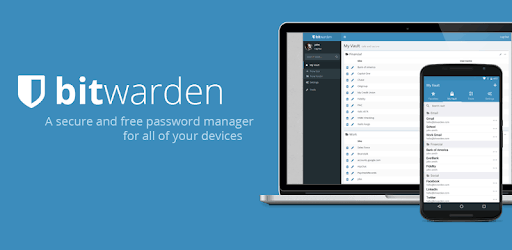
- #BITWARDEN YUBIKEY FULL#
- #BITWARDEN YUBIKEY PASSWORD#
- #BITWARDEN YUBIKEY SERIES#
- #BITWARDEN YUBIKEY FREE#
#BITWARDEN YUBIKEY PASSWORD#
Actual ResultĪny subsequent logins after the initial login on the desktop application will only ask for the master password and skips the request for Yubico 2FA NFC fingerprint challenge. The next login asks for a password but skips the NFC 2FA challange effectively rendering 2FA uselessĮvery new login on any platform (web, or desktop app etc) should always request both authentication methods.Initial login gets prompted for Yubikey NFC fingerprint scan

Log into Bitwarden Application on Windows 10.Web client will always ask to scan NFC fingerprint on Yubikey While Bitwarden isn’t disclosing how much it paid for the startup or how many employees it’s taking on as part of the deal, it did confirm that v hasn’t raised any external funding in its two-plus years in existence, meaning it likely didn’t break the bank for the acquisition.īitwarden also confirmed to TechCrunch that v will continue to be offered to developers independently of other Bitwarden products.
#BITWARDEN YUBIKEY FREE#
v by Bitwarden will be free through its initial beta period in Q1 2023, after which the company said it will offer paid plans that cover certain levels of usage and features. Bitwarden v helps them quickly add WebAuthn and passwordless authentication features into these applications.” “Enterprises also have business applications that still rely on passwords for authentication and want to provide users with passwordless experiences. “This saves weeks of coding do-it-yourself passkey implementations,” Bitwarden CEO Michael Crandell explained to TechCrunch in an email.

Image Credits: vįrom today, Bitwarden has launched a new beta service called v by Bitwarden, which allows any third-party developer to embed biometric sign-in technology such as Touch ID, Face ID and Windows Hello into their apps. v allows companies to implement password-free authentication in minutes. But by bringing v under its wing, Bitwarden wants to make it easier for developers to bake native biometric sign-in smarts into their software, while allowing enterprises to modernize their existing applications that currently rely on passwords. Last year, Apple, Google and Microsoft partnered in support of a new password-free sign-in standard called WebAuthn, while separately Apple introduced a new feature called Passkey that allows people to use their Apple device to log in to online services without passwords.Įlsewhere, passwordless-focused startups such as Hypr, Magic and Stytch have attracted VC dollars to bolster their respective efforts.īitwarden, for its part, already offers some support for passwordless authentication, such as biometric logins for Bitwarden’s own apps, while it also supports physical two-factor authentication (2FA) security keys such as YubiKey. Indeed, there has been a concerted push toward passwordless authentication across the technology landscape. Now, Bitwarden is looking to capitalize on a burgeoning trend in the online security sphere, one that is looking to consign passwords to the history books - compromised passwords, after all, are responsible for most business security breaches.

#BITWARDEN YUBIKEY FULL#
Bitwarden’s key selling point, though, is that it’s open source - or, at least, it’s source available, meaning that it promises full transparency into the codebase, while also allowing the community to contribute and help develop new features.
It’s all about helping people to not re-use the same predictable password across all their online services. Similar to other password management services, Bitwarden is designed to make it easier for individuals and enterprises to automatically create hard-to-guess passwords, and store them all in a secure vault.
#BITWARDEN YUBIKEY SERIES#
The company also revealed at the time that it had raised a previously undisclosed Series A round in 2019. The news comes shortly after 1Password and LastPass rival Bitwarden announced its first outside funding since its inception in 2015, securing $100 million from PSG and Battery Ventures. Open source password management platform Bitwarden has made its first known acquisition, snapping up a fledgling Sweden-based startup called v, which specializes in helping developers integrate passwordless authentication technology into their software.


 0 kommentar(er)
0 kommentar(er)
